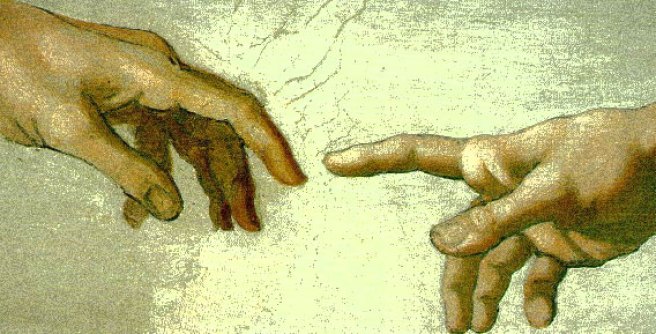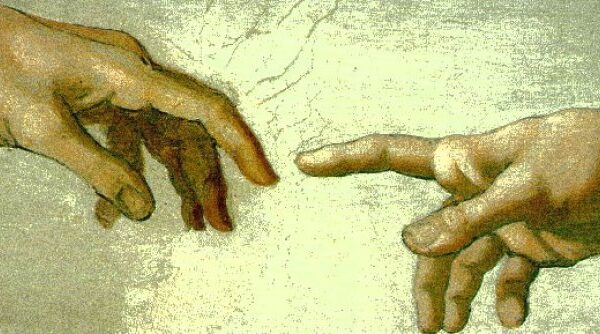
I must have signed tens of thousands of prescriptions over the years for a variety of medical conditions from athlete’s foot to diabetes. Not one patient, as far as I can remember, has congratulated me on my expertise around knowledge of the evidence base, guideline awareness, titration skills, dose precision, grasp of pharmacodynamics or knowledge of drug interactions. Important and necessary as all of these are, these things are often valued more by science than they are by patients.
Don’t get me wrong – I respect medication and its impact. People’s lives often improve because of what we prescribe, but when people have fed back to me after meds have been started, the take home message has not been about the medication. The patients I work with rank other things higher than the prescription and even its impact.
It is the anecdote that connects us to our patients, it is understanding the individual for whom we care that brings us joy, and it is connecting with their personal experiences that makes our work so rewarding.
Meagan Brennan
What I’ve learned from patient feedback is that certain values – listening, empathising, caring, and taking time with them – are far more valued than the drugs I prescribe, regardless of what the evidence base says. Sometimes the medication does not work the way we hoped it would and sometimes it does. While many medications are undoubtedly effective, generally I believe we doctors tend to over-value what a pill, cream or liquid can do. I certainly have done – many times. However there are other things in our meetings with patients that have value and these are not always recognised.
We make treatment plans for patients using the latest drugs. Usually they work well, but when they don’t, we label the patient “non-compliant.” After all, they must be doing something wrong because we have enacted an “evidence based” plan.
Meagan Brennan
In her blog[1] for the BMJ, Meagan Brennan raises the concern that as we focus more and more on the evidence, we lose the humanity that is essential for good care and outcomes. She points out that the promising-sounding ‘personalised medicine’ that is now being introduced, in fact, takes us further from ‘the heart of doctor-patient interactions and deeper into the realm of impersonal science’.

She lauds the new interest in the humanities that is developing in medical student teaching. I remember so strongly when I was at medical school missing the subjects I had studied at school that had nothing to do with science. I was missing out on things that inspired me and sent my imagination and creative spirit soaring. Dealing with suffering, the impact of trauma, the bleakness of illness and death – and what those things actually mean – was not something I was prepared for in any way by my scientific training at university. In fact during a six month hospital job in a cancer unit, I almost gave up on medicine as a career. My spirit had been diminished by watching the suffering my patients experienced – sadly a significant number were to die despite the best treatment available. I wasn’t able to admit it at the time, but I was frightened and out of my depth. My difficulty in dealing with this was not unique but this simply wasn’t something we junior doctors were encouraged to talk about. Several decades later I find myself considering the question raised by Brennan: could the study of medical humanities have helped?
Medical Humanities: Its advocates contend that it can develop empathic practice and a social justice conscience in medical students. It is also being explored as a tool to enhance job satisfaction and reduce burnout in consultant physicians and junior doctors.
Studying the medical humanities can help doctors gain insight into what illness means for patients, but crucially can increase self-awareness and self-perception. The subjects that come under this banner take in concepts like relationship, emotion, the narrative, and spirituality. While medical humanities may help us humanise our own and our patients’ experiences, stigma does a very effective job at doing the opposite.

In another paper[2] by Harry Sumnall and colleagues, the dehumanising of heroin users is evidenced – framing those who use heroin as different, less worthy, and even ‘disgusting’. People who use heroin become less than human and more animal-like. Such characterisation is associated with ‘moral disengagement’ and distancing by others and can have real-life consequences including the ‘denial of human agency’ in popular and political discourse. This can lead to reduction of treatment funding when policymakers rationalise that due to lack of public support, there will be little protest when resources for addiction treatment are slashed. Many of us experienced harsh cuts to treatment services not that long ago. I remember thinking that cutting paediatric or cancer services to that degree would have been seen as unconscionable, yet it happened in addictions.
How do Sumnall and colleagues think dehumanising should be tackled? Simply, as it turns out: by social inclusion and by humanising narratives. Letting people tell their stories in the media – ‘encouraging compassionate media representations’ is likely to humanise. After all, listening is a two-way street. My listening to my patients is appreciated by them, but the same process has the power to change the way I see their world – how I perceive and relate to them.
The topics of humanising and dehumanising are ultimately about relationship and connection, or lack of it. When I am connected to you, I see your humanity – I value you more and draw closer. In a doctor/patient relationship this may be expressed as commitment. My determination to support you strengthens the more connected to you I become. This process needs healthy boundaries to be effective, but many of us can find ourselves distancing from pain and suffering because of the emotional cost of connecting. My frightened junior doctor self did not recognise that although I could not save every life from cancer, I was doing something meaningful by being present, listening and connecting. Perhaps this represented being spiritually available.
Mark Galantar and colleagues frame deeply felt commitment as a spiritual component in the recovery process which in itself adds to recovery capital – the resources people can call upon to help them resolve their problems and recover. In a paper about spirituality in addiction medicine[3] they point out that recovery can signify finding ‘meaning and purpose in life’.
“Spirituality has been defined with regard to clinical settings as a commitment to transcendent or existential personal meaning in one’s life, typically involving a connection with something larger than oneself and is distinguished from the pursuit of material needs or organised religion”.
Galantar et al
Galanter et al reference the strong evidence behind the spiritual approach of 12-step groups citing the recent Cochrane review on Alcoholics Anonymous, and although they point to neuro-imaging research that may support the potential benefits of spirituality, they also highlight that the dominance of a biological/medication perspective is often at the expense of integrative approaches which acknowledge the ‘interconnections of mind, body and society’.
“Abstinence after discharge from professional treatment was found in one study to be three times as likely among patients who reported having had a spiritual awakening”.
Galantar et al
They assert that spirituality is often ‘culturally resonant’ with underserved or disadvantaged groups and that ‘engaging spirituality and related community organisations in treatment is an important aspect of improving treatment access, outcomes, and equity for underserved groups’.
Addiction, the behaviours associated with it, society’s stigmatising attitudes and the shame that so many people carry with them as a result, can result in dehumanising attitudes and responses. Studying the medical humanities may help current and future doctors be better physicians and to be more connected to themselves and their patients. Hard science alone cannot provide us with all of the tools that we need – a spiritual dimension is also required.

Everyone will have their own understanding and experience of ‘spirituality’, but in my practice, I think of it simply as things that enrich my spirit – that make me spirited. When my spirit is quickened, then I am a better doctor. Listening to patient narratives – ‘what’s happened to you?’ – finding meaning in those stories, putting judgement aside, empathising with the individual, connecting with that person in front of me and meeting them where they are – are for me deeply spiritual things. Others may choose to call the same things something more scientific – a complex interaction between oxytocin, serotonin and dopamine perhaps, but I find myself resisting that urge.
What if, as Meagan Brennan suggests, we are missing a piece of the evidence in our evidence-based practice? What if this something is both profound and necessary? Whether we call it humanity, connection, spirituality or something else, the amazing thing is that by adding this in and truly listening to our patients’ stories we will help not just them but ourselves too.
To be a good doctor you need to have a robust grasp of the science of medicine, but that’s not enough in itself. We need to come alongside our patients, draw close and travel a bit with them. Listening compassionately to their story is the way to do this. When the day comes that I hang up my stethoscope for the last time, my hope is that I am not so much remembered for my prescriptions or my medical expertise (such as it is) as I am for my humanity.
Continue the discussion on Twitter: @DocDavidM
[1] https://blogs.bmj.com/bmj/2021/09/02/are-we-losing-our-humanity-in-medicines-quest-for-pure-science/
[2] Sumnall, H., Atkinson, A., Gage, S., Hamilton, I. and Montgomery, C. (2021), “Less than human: dehumanisation of people who use heroin”, Health Education, Vol. ahead-of-print No. ahead-of-print. https://doi.org/10.1108/HE-07-2021-0099
[3] Galanter M, Hansen H, Potenza MN. The role of spirituality in addiction medicine: a position statement from the spirituality interest group of the international society of addiction medicine. Subst Abus. 2021 Jul 2:1-3. doi: 10.1080/08897077.2021.1941514. Epub ahead of print. PMID: 34214398.
